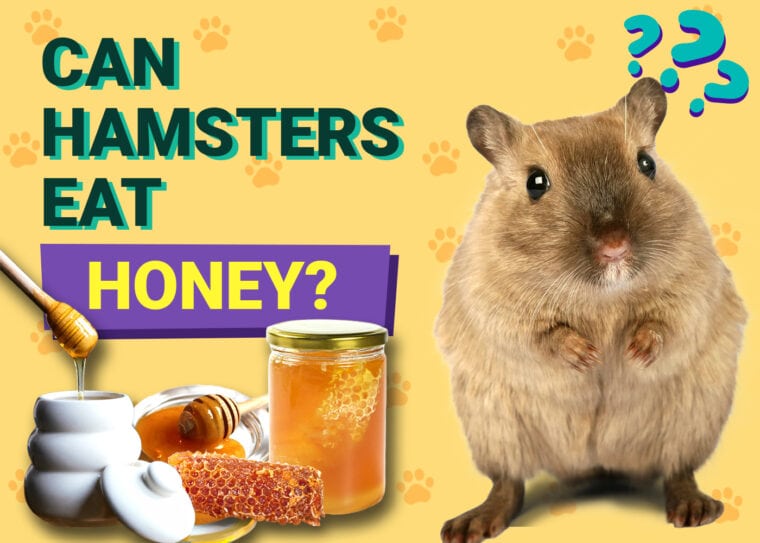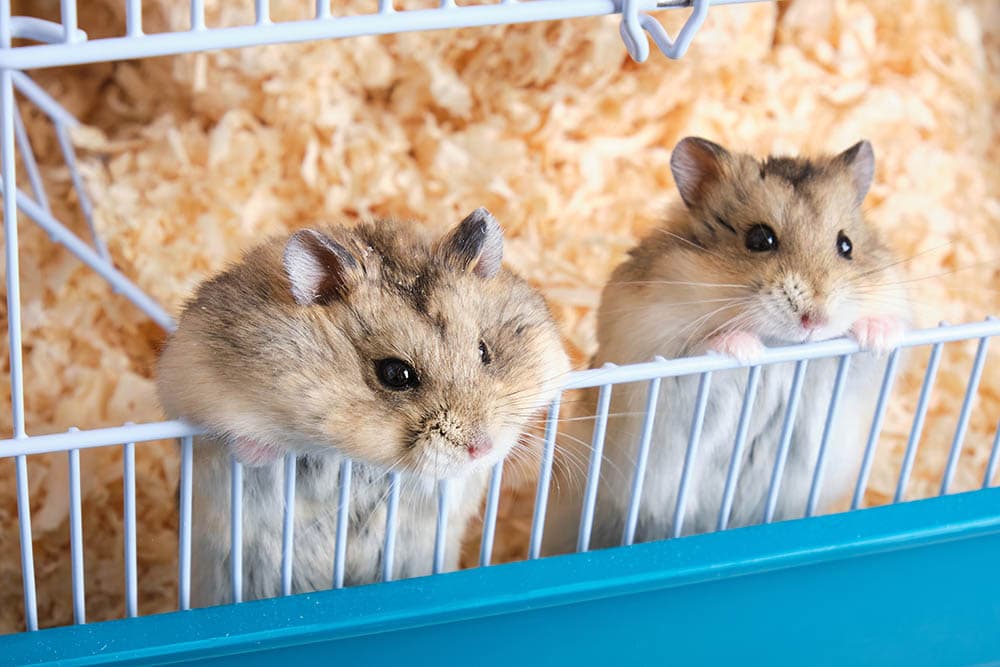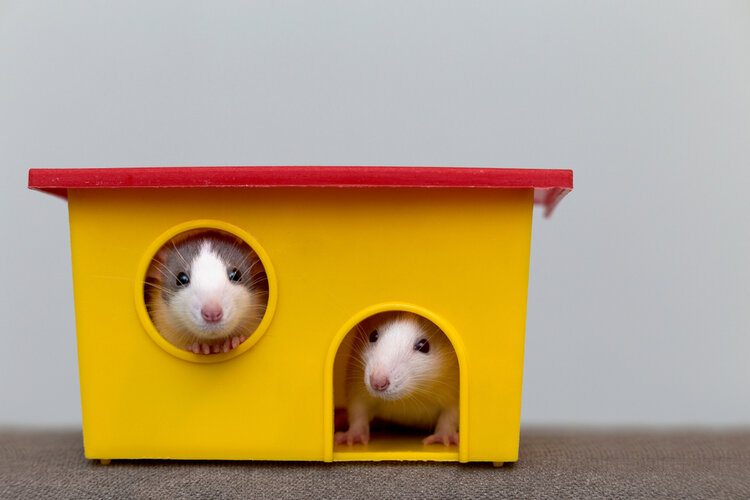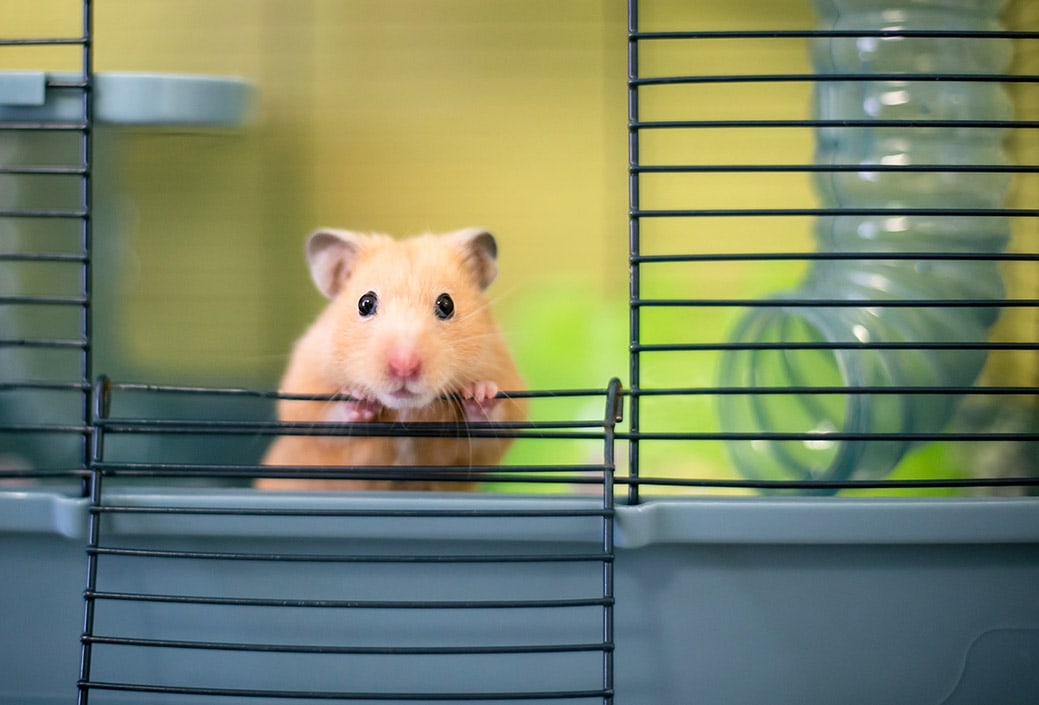
Honey is a natural substance made by bees that is dense and sweet. Many people use it as a natural sweetener in place of sugar. It can be much healthier for humans, allowing us to satisfy our sweet tooth without compromising our diets too much.
However, does that mean we can feed it to our pets? Can hamsters eat this natural sweetener? To keep it short and sweet, yes, hamsters can eat honey, but it’s likely best to avoid offering it to them.
Can Your Hamster Eat Honey?
It is always best to think about what an animal would eat if they were in the wild, especially one that has been so recently domesticated like hamsters.
Hamsters do not eat many sugary things in the wild because they only get natural sugars from foraged fruits, and even these are few and far between. Honey isn’t a typical food for them. However, in moderation, honey is considered safe for hamsters. It is also sometimes added to hamster feed during the production process to make the end product more palatable. Therefore, odds are your hamster is already getting some honey from their pellets. This can be confirmed by looking at the ingredients of your hamster’s pellets.
If you decide to give honey to your hamster, make sure to observe them after giving them a tiny amount. A sudden change of diet can lead to an upset stomach in hamsters, possibly leading to diarrhea. It is important to keep in mind that hamsters experiencing diarrhea should not be rehydrated with water, as this may make things worse for them. Diarrhea should be considered a serious issue in hamsters, and it warrants prompt attention from a veterinarian.
Honey does have positives, however, even in the tiny amounts fed to your hamster.

Honey’s Nutritional Value
Honey has a higher nutritional value than almost any other sweetener, both synthetic and natural options. Bees produce it by using nectar that they take from flowers. They bring this back to the hives, and worker bees help store and transform the substance throughout the season.
Honey is meant to be bee food, and they store it so they have plenty to eat throughout flowerless seasons like winter. The primary component of honey is sugars.1
Honey has trace amounts of most minerals and some vitamins. Though honey does contain vitamin C, this particular vitamin isn’t considered essential for hamsters. Unlike humans, their bodies can make this vitamin on its own.
The Risks of Serving Honey to Your Hamster
Serving honey to your hamster does have health risks. A single tablespoon of honey contains around 61 calories. This alone far exceeds the nutritional requirements of a pet hamster by over twice the recommendation!
Therefore, a hamster offered too much honey would feel too full to eat anything else yet would not receive a nutritionally complete meal. Notably, honey lacks vitamins A, B12, and E. This would hypothetically lead to a pet that’s overweight and unhealthy.
The high sugar content of honey and its texture may also be a contributing factor for dental or oral disease in hamsters. Furthermore, honey has a sticky texture and may become lodged in a hamster’s cheek pouch. Though a hamster’s cheek pouches are large, they lack salivary glands. Therefore, sticky foods can easily become trapped in their pouch, requiring veterinary attention before it leads to an infection.
Finally, most hamsters may not find honey acceptable in the form it is offered to them. Hamsters, like many other rodents, prefer holding food items in their paws, and honey doesn’t afford them this opportunity. It may cause their paws to feel sticky, clump with their substrate, and lead to mobility issues.

Conclusion
Honey is not a toxic substance for hamsters, but it can only be served in tiny portions. Odds are it is already present in your hamster’s pellets. There are far too many risks and far too few benefits of feeding your hamster honey on its own. Therefore, it is best to avoid actively trying to incorporate it into their diet.
Related Reads:
Featured Image Credit: stevepb, Pixabay








